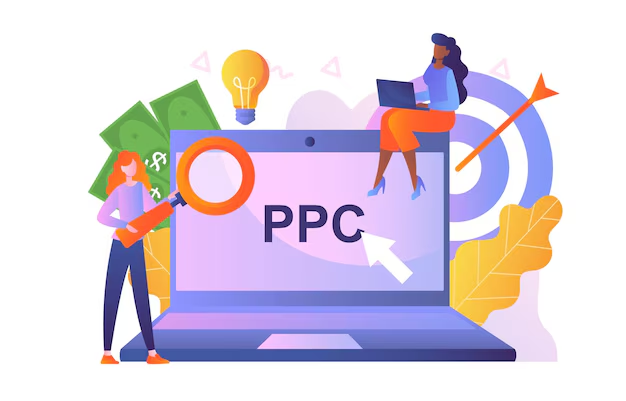Introduction
Branded and non-branded keywords are like the secret ingredients in your digital marketing recipe. They might sound technical, but understanding them can totally change the game for your website’s traffic, leads, and sales. Whether you’re running an e-commerce store, a service-based business, or just starting your brand, knowing when and how to use branded and non-branded keywords can unlock more visibility, more customers, and more growth.

What are Branded Keywords?
Branded keywords are words or phrases that include the name of your brand, company, or a product you offer. Think of them as your digital name tag.
Example Time:
If your business is called “SuperCool Shoes,” then:
“SuperCool Shoes”
“Buy SuperCool running shoes”
“SuperCool Shoes discount”
These are all branded keywords because they have your business name in them.
Why are they important?
When people search for your brand name, they already know about you. Maybe they saw your ad, heard from a friend, or remembered your awesome product. That means they’re interested — and more likely to buy.
Benefits of Branded Keywords:
Higher conversion rates: People are more ready to buy.
Lower ad costs: These clicks cost less in PPC campaigns.
Better SEO performance: Google trusts your site for your own brand.
It’s like someone walking into a store and saying, “I want this exact shoe.” That’s a hot lead!
What are Non-Branded Keywords?
Non-branded keywords are the opposite. They don’t include your business name. These are more generic search terms people use when they’re looking for options or solutions but haven’t picked a specific brand yet.
Example Time:
For our “SuperCool Shoes” business, non-branded keywords could be:
“Best running shoes for women”
“Comfortable shoes for walking all day”
“Affordable kids’ sneakers”
These people don’t know about you yet. But they’re looking — and that’s your chance to show up!
Why are they important?
Non-branded keywords bring in new people who may not know your brand. You’re helping them in their discovery phase.
Benefits of Non-Branded Keywords:
Attract new customers: Reach people who are just starting their search.
Grow brand awareness: Introduce your company.
Increase website traffic: Get seen by more people.
Imagine someone asking, “What’s the best shoe for running?” This is your opportunity to say, “Hey! Try SuperCool Shoes!”
Why you need both in your strategy?
Branded keywords are for people who know you. Non-branded keywords are for people who don’t — yet. Both are essential for different reasons.
Think of it like this:
Branded = Loyal fans
Non-branded = New opportunities
When you use both together, your website can:
Show up for loyal and new visitors
Bring in more traffic
Get more sales
Build a lasting online presence
Using Branded & Non-Branded Keywords in SEO
SEO means getting your site to show up in Google without paying for ads. Here’s how both keyword types fit in:
Branded SEO Tips:
Make sure your homepage, about page, and product pages mention your brand name.
Claim your Google Business profile so people find you easily.
Get backlinks with your brand name from trusted sites.
Non-Branded SEO Tips:
Write blog posts answering common questions: “How to choose the best running shoes?”
Create product pages with descriptive titles: “Running Shoes for Long Distance Runners”
Add FAQs to your site with keywords people search for.
The goal? Make Google love your site — so people can find you!

Using Branded & Non-Branded Keywords in PPC (Pay-Per-Click)
PPC is where you pay to show up at the top of search results. The trick is to spend smartly.
Branded PPC Tips:
Always bid on your own brand name. Why?
Competitors might bid on it too
It’s cheap and brings ready-to-buy users
Create ads that highlight trust, discounts, or free shipping
Non-Branded PPC Tips:
Use non-branded terms to attract new customers
Test different keyword phrases: “best,” “affordable,” “top-rated”
Target long-tail keywords like “running shoes for flat feet women.”
Pro Tip: Run separate campaigns for branded and non-branded keywords. That way, you can track what works and spend your money wisely.

Real-Life Keyword Strategy Tips:
1. Allocate your budget wisely
Spend more on branded keywords for conversions.
Use some budget for non-branded to grow your reach.
2. Create separate campaigns
Keep your tracking clean.
Know which keywords are driving sales.
3. Optimize your content for Non-Brand terms
Write helpful blogs.
Create videos and guides.
4. Keep an eye on performance
Use Google Analytics or keyword tools.
If something is working, double down!
5. Watch your competitors
Are they bidding on your brand name?
Don’t let them steal your traffic.
6. Use retargeting
Show ads to people who visited your site through non-branded keywords.
Bring them back with branded keywords.
7. Diversify your landing pages
Send branded traffic to your shop or contact page.
Send non-branded traffic to blogs, comparisons, or guides.
8. Experiment with keyword intent
Try keywords with different meanings.
Compare “cheap shoes” vs. “durable running shoes for beginners.”
9. Use audience segments
Show different ads to new visitors vs. returning ones.
10. Leverage long-tail keywords
These are longer, specific keyword phrases.
Example: Instead of “CRM software,” use “CRM software for travel agencies.”
Final Thoughts:
Branded and non-branded keywords are not rivals — they’re teammates. Each plays a unique role in growing your business online. Branded keywords bring in loyal, ready-to-convert users. Non-branded keywords introduce your brand to a whole new audience.
When used together with a smart strategy, they boost traffic, lower costs, and increase sales.
So, whether you’re just starting out or looking to grow your business online, remember:
Use branded keywords to stay top-of-mind
Use non-branded keywords to expand your reach
Use both to win in SEO and PPC

